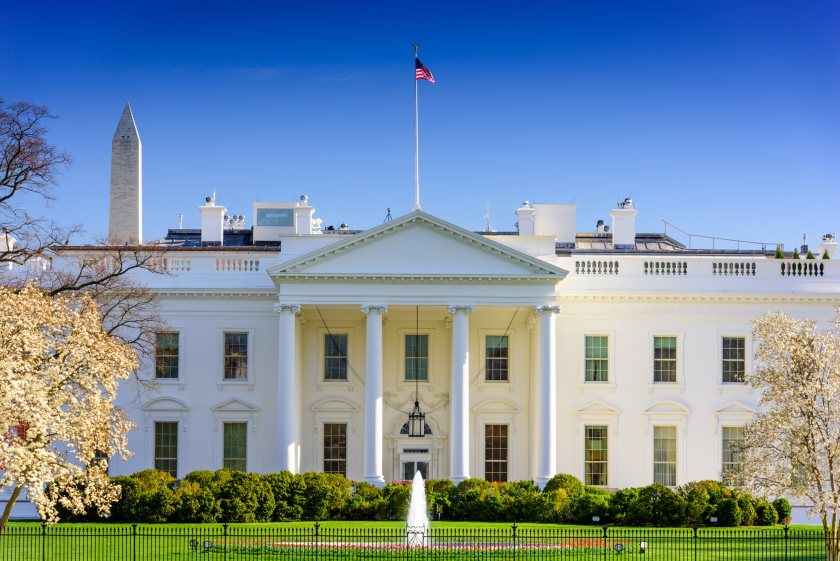
What impact might a Trump or Harris US Presidency have on UK retail, courier and supply chain businesses?
As the neck-and-neck election nears, delivery firm Parcelhero says there are pros and cons to both candidates, which could have significant repercussions for UK-US trade.
As the 5 November US elections near, the two candidates are so close it’s impossible to get a cigarette paper, or at least a voting slip, between them.
Parcelhero says the final result could affect British retail and logistics companies more than the UK's own General Election did.
Trump
Cons
• Trump has proposed a 20% universal tariff on all US imports. Such a tariff on UK exports to the USA would obviously have a significant impact on the price of many products, from whiskey to Barbour jackets. In addition, Trump could revive his former trade disputes with the EU and UK over steel and aircraft.
• Amazon founder Jeff Bezos, owner of The Washington Post, was allegedly behind the newspaper’s recent decision to drop its longstanding tradition of offering a Presidential endorsement. In this case, the endorsement was for Harris. Trump is likely to repay US Big Tech bosses’ loyalty by retaliating against the EU’s new digital regulations. This will impact on UK traders relying on online marketplaces to sell to the US.
• Privatisation of the US Postal Service (USPS) may still be high on Trump’s agenda. Right at the start of his first Presidency, Trump commissioned a report that claimed: "A privatized Postal Service would have a substantially lower cost structure.” That could potentially raise prices for UK SME exporters using surface mail and have an impact on existing global couriers because of market disruption.
• It’s possible a second Trump Presidency would, at least initially, significantly upset global markets, with a resulting impact on national economies, including the UK’s.
Pros
• While some experts see a 20% tariff on UK goods as likely, it’s not inevitable. Countering Barack Obama’s comments about Britain being “at the back of the queue” for a free trade deal post-Brexit, Trump declared if his Presidency had continued Britain would have been promoted to the front of the line.
• An America-first trade policy could have unexpectedly positive benefits for the UK. In 2019, Trump went head-to-head with the Universal Postal Union – the governing body of all international mail services – in a bid to raise China’s rock-bottom postal rates to America. Trump won the day and, as a result, other Western countries, including the UK, have now been able to renegotiate the rates China pays to access their postal systems.
• A Trump Presidency doesn’t inevitably mean USPS privatisation. Former Trump donor and Trump appointee Louis DeJoy is still in charge of the USPS, so Trump may not have as adversarial a relationship with the service as he did in the first years of his Presidency. While initially proposing massive cuts to services, DeJoy backed down from these plans and has not been the privatiser some people feared.
• Ironically, a Trump Presidency might facilitate a broader UK-EU trade rapprochement. An EU-US trade war may mean the EU takes a more positive attitude to the important UK market and eases some post-Brexit tariffs and red tape.
Harris
Cons
• Under Harris, the likelihood of a quick UK-US trade deal still remains slim. While serving as Vice President she has shown little interest in pursuing free trade agreements, instead focusing on the Inflation Reduction Act, which many experts argue is a protectionist device to encourage US consumers to buy American-made electric cars and green goods.
• Republicans have shown more support for a UK trade deal than Democrats. In recent years, the UK signed a number of memorandums with Republican states, ensuring greater market access for the UK.
• Harris’ planned corporation tax rate of 28%, first announced by President Biden, would be one of the highest of the developed world’s economies and it would impact on UK companies with US branches. In comparison, the UK’s corporation tax rate is 25%.
• As the “continuity candidate”, Harris looks set to continue Biden’s regulatory regime. Some experts say this has imposed a record $1.7 trillion of regulatory costs on the private sector. The Federation Trade Commission’s Chair, Lina Khan, has been accused of over-intervention by trying to break up Amazon and blocking many merger deals.
Pros
• In 2019, Harris declared, “I am not a protectionist Democrat.” At the start of her campaign, she declared there is potential for “wiggle room” on Trump and Biden’s tariff policy. The analysis of UK political experts Chamber is that a Harris administration could offer improvement on the long-promised US-UK trade deal.
• The Democrats have embraced green investment. This could provide indirect benefits to UK businesses operating in these sectors as demand for green tech grows. The UK trade policy expert Allie Rennison says: “Harris would basically be looking to the UK as a sort of partner in burnishing her foreign policy credentials in terms of energy and climate change cooperation.”
• Given his unpredictable approach to international relations, a Trump win could lead to market instability. Harris’s election could offer a steadier hand and she looks like being the favoured winner across international markets.
• Harris may continue with Biden’s plan to introduce a 28% corporation tax but, even for UK companies establishing their own US business arms, the valuable opportunities will easily outweigh the rise, say analysts.
Parcelhero’s Head of Consumer Research, David Jinks concludes: ‘While most of us will have our own opinions on who we want to see win the race to the White House, both Donald Trump and Kamala Harris are likely to bring both opportunities and difficulties for UK trade."